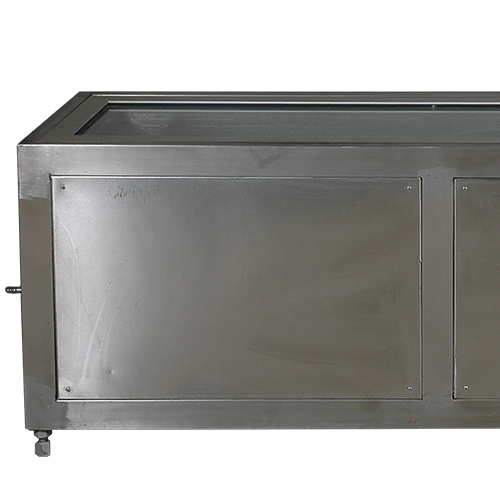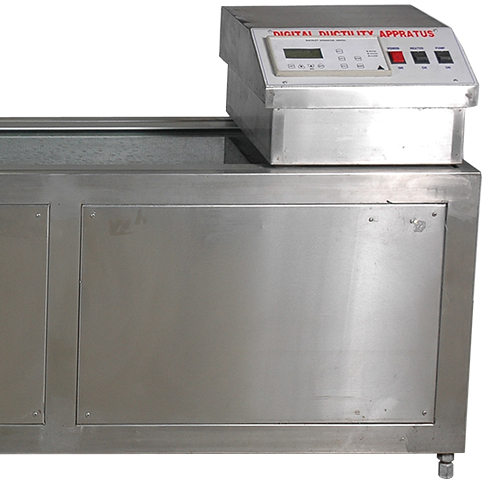Bituminous surfaces exposed to varying temperature conditions undergo a great deal of expansion and contraction. An important characteristic of the binder is its ductility and the degree of ductility has an effect on the cracking of bituminous surfaces caused by traffic stress.
The ductility of bitumen is expressed as the distance in centimeters to which a standard briquette can be elongated before the thread formed breaks under specified conditions. A molten bitumen sample is pored into a standard mold, allowed to cool to room temperature and then placed in a water bath so that the briquette can be brought to test temperature before mounting in the testing machine.
Designed to test three specimens simultaneously, the machine consists of a carriage moving over a lead screw. An electric motor-driven reduction gear unit ensures smooth constant speed and continuous operation. The entire assembly is mounted with a water bath completely encased in metal bound hardwood. It is equipped with an electric pump circulator and heater. The temperature is controlled by a digital temperature controller. Two rates of travel – 5cm/minimum and 1cm/minimum – are provided. The machine is supplied complete with four ductility molds, each with a base plate.
Ordering information
- TO-565-DG-01 Ductility testing machine, electrically operated, 110V, 60Hz
- TO-565-DG-02 Ductility testing machine, electrically operated, 220V, 60Hz
- TO-565-DG-03 Ductility testing machine, electrically operated, 220V, 50Hz
- TO-565-DG-C-01 Ductility testing machine with cooling, electrically operated, 110V, 60Hz
- TO-565-DG-C-02 Ductility testing machine with cooling, electrically operated, 220V, 60Hz
- TO-565-DG-C-02 Ductility testing machine with cooling, electrically operated, 220V, 50Hz
Applicable Standards
- ASTM D 113, AASHTO T51






 Ductility Testing Machine
Ductility Testing Machine